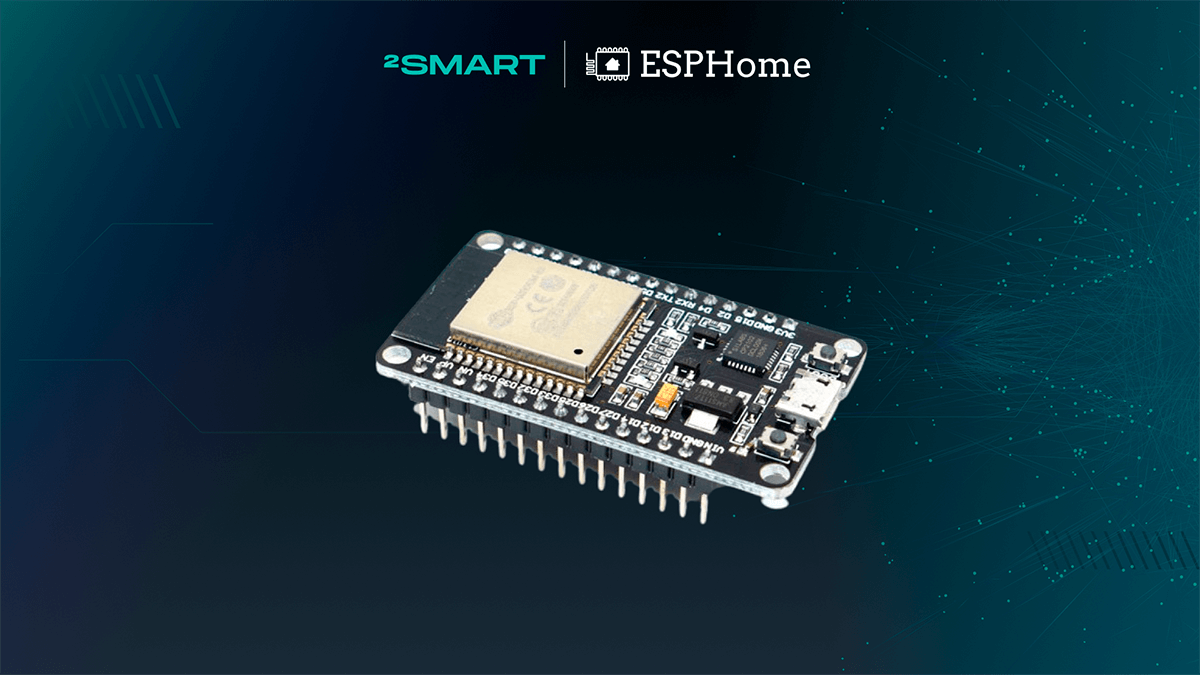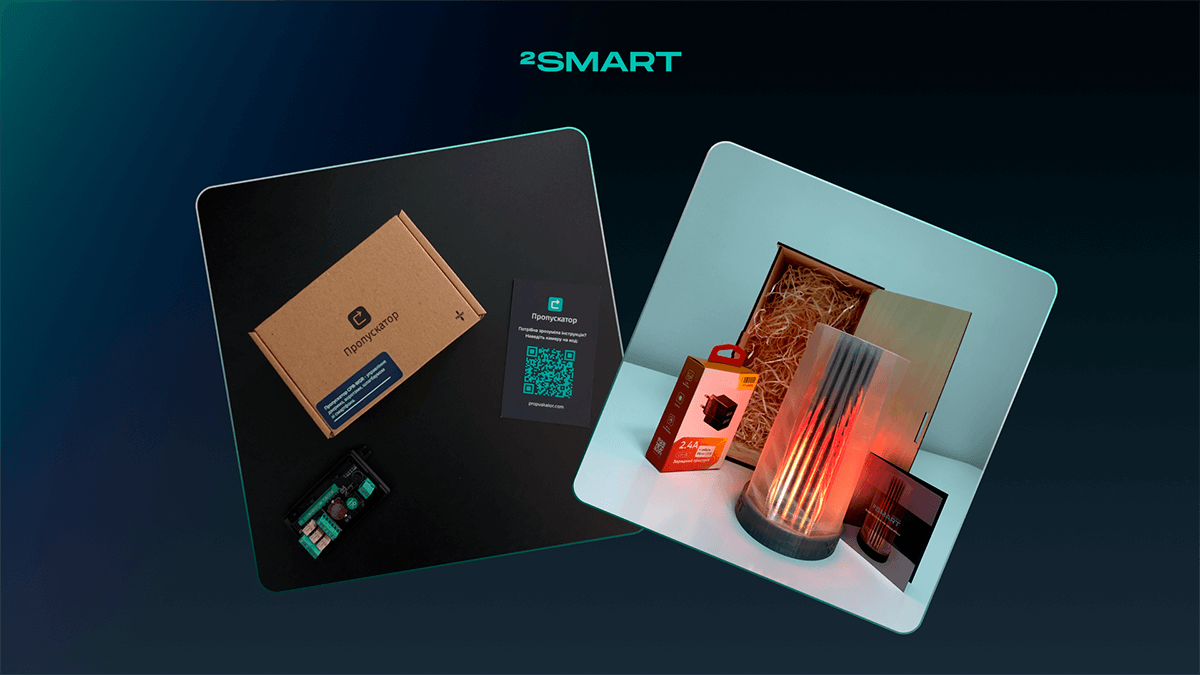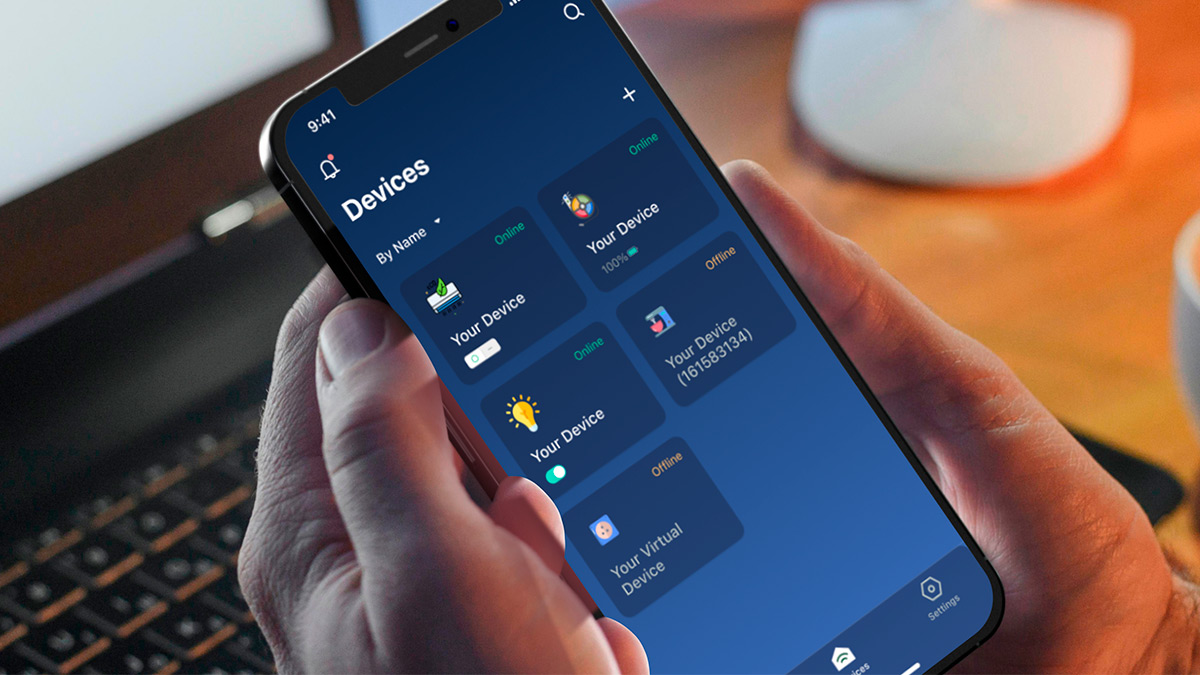Table of contents:
In a 2018 Forbes Insight survey of 700 business executives, 60% of them said they are using IoT to explore new lines of business. This vividly illustrates that our dependence on the Internet of Things is growing dramatically. We are no longer surprised by a device that has access to the web, as they are all around us everywhere and continue to be an attractive technological phenomenon. In 2024, anything can connect to the Internet: smart watches, kettles, fitness trackers, security systems, and even entire homes.
IoT helps in the development of logistics, the agricultural sector, and whole “smart” cities. For example, it remotely monitors the condition of dilapidated facilities, collects data for analysis, and monitors moisture levels in the soil. In construction, the Internet of Things helps save on equipment maintenance so that objects can be repaired when needed. In logistics, it helps monitor the way cargo is delivered. In short, there are a lot of applications for IoT, and startups in this niche have every chance of success. The main thing is to determine the IoT business model according to which you will monetize your business. In this article, we will present the types of IoT business models, offer some examples of IoT business models, and explain how to choose between IoT business models for startups.
Importance of Choosing an IoT Business Model for Your Startup
All startups sooner or later come to the question of developing a business model. Its main function is to determine the viability of the existing project. But what is a business model and what business opportunities does it provide?
An IoT startup business model is essentially a conceptual framework for a business project. It explains who, why, where, when, and how produces, buys, and consumes a product or service and how much the business earns (or loses) from it. It can take many forms, from a schematic idea in the entrepreneur’s head to complex graphic presentations and financial models that calculate performance over 5–10 years (and sometimes more).
The result should be judged by the depth of elaboration: a good business model always considers several possible business development scenarios and answers the question of what to do in each of them.
In the case of IoT startups, the business model is also necessary and important. In this case, however, it relies heavily on the advantages of the Internet of Things (long-range communication, embedded chips, data processing, and more). At the heart of every Internet of Things business model for startups is:
- Capturing and delivering value to a specific target audience;
- Leveraging the unique characteristics of the Internet of Things.
Let’s take a closer look at potential IoT startup business models. In this case, the uniqueness of the IoT model lies in how closely it maintains that relationship with the end-user. The choice of business models for IoT determines the future path of an Internet-of-Things product and its possible paths, so the choice is critical.
8 IoT Business Models for Your Startup in 2024
So, let’s take a closer look at business models and IoT. Any business project needs money to grow and develop. The main task from the very beginning is to choose a suitable monetization model. Since a startup operates under conditions of uncertainty, at the start, it is impossible to determine exactly who will pay and whether it will pay at all. The monetization method choice is based on identifying and evaluating the product’s benefits for the consumer and its key idea.
Let us consider the most effective models which have repeatedly proved their effectiveness in practice.
The subscription model
The subscription model allows your IoT product to implement many of the IoT business benefits available only to software products. It is essentially “IoT as a service” for a system that includes both software and IoT hardware.
The model involves a regular payment for the product. It is used by the media, online movie and music services, software platforms (Adobe), hosting providers, HR portals, analytics platforms, and so on.
To implement the model, the product must have steady demand from a particular audience. If the user has stable spending for a specific need, the subscription should bring a benefit compared to an individual purchase, e.g., a discount, extended functionality, etc. A free trial or demo can be used to attract customers.
This model has the following advantages:
- constant profitability;
- easy profit predictability;
- high customer retention rate as consumers often do not cancel subscriptions;
- the ability to develop multiple pricing plans (tiered pricing).
Outcome-based model
The ideology behind the results-based service model is that companies sell business results, not just products. Both sides agree on specific outcomes that are measurable and achievable to ensure customer success. Thus, clients achieve the desired outcome, and service providers know what is expected of them.
The idea here is that customers pay for the product’s outcome (or benefit), not the product itself.
Sell IoT devices
This is a standard monetization model that involves making money through selling (or reselling) a physical or virtual product.
In this case, the advantages are as follows:
- the model is standard and clear—there is a product to sell to the end consumer;
- a simple calculation of the economy;
- stability with established sales channels.
The “razor blade” model
This involves a low-margin product that requires itself to have expensive or frequently used co-products. All disposable razor blades, inkjet printers, and Amazon Kindle follow this pattern.
Develop your IoT product to be able to sell other products. In this model, you can sell the IoT product at cost or even at a loss, as the goal is to get the product in the hands of the customer to start selling paid services.
Data monetization
Information is the most expensive commodity today. Companies are willing to pay large sums to acquire big data for marketing research. This Internet of Things startup business model is popular among major social networks.
In the case of new IoT business models, you can create a product to provide value to the end-user and collect valuable data that you can sell to a third party. In this case, you can even offer your IoT device for free.
Pay-per-usage
With this business model in IoT startups, the goal is not to make money from the device itself. Instead, you use the data from the IoT device to track its usage.
Pay-per-use means the customer chooses the set of services/goods and thus doesn’t spend extra money. For example, when you use a phone, you select the package of services from the operator that is the most profitable and convenient for you. Another example is a custom IoT software development company that provides several packages for customers with different functionalities.
Asset-sharing model
The idea of asset sharing will continue to gain popularity in 2024. Its essence is that the costs of an expensive IoT infrastructure are distributed among many consumers, for each of which, individually, the resources of a given IoT product are redundant. As a result, each of them can use an IoT product that would otherwise be inaccessible.
Everyone knows examples of asset sharing in the consumer sector. These are car-sharing services like UberPool or electric scooter-sharing services. Thanks to the IoT, services for sharing drones, unmanned vehicles, etc. are also appearing.
In manufacturing, using an asset-sharing model looks like partnering with nearby businesses to share heavy equipment costs. IoT sensors track the location of equipment and its use and monitor the machines’ technical condition to provide predictive maintenance.
Your IoT startup may aim to create a product that provides similar solutions. Since there are still many niches left in 2024 where digital transformation is incomplete, your offering for these niches could be very competitive and in demand.
Asset-tracking model
Demand for asset tracking will also continue to grow in 2024, driven partly by the rise of retailers and logistics companies. Identifying, controlling, and tracking assets in real-time is in demand for both businesses and their customers.
In addition to tracking the location and conditions of cargo transportation or storage, asset tracking involves tracking the supply chain to identify inefficiencies, streamline workflows, and improve usage visibility.
You can complement this IoT business model with a dedicated platform where the customer can get all the data in one place for an additional fee.
Internet of Things Business Models Comparison Table
| Business model | Return on investment | Time | Potential audience size | Starting up difficulty |
| Subscription Model | High | Fast | Big | Easy |
| Outcome-Based Model | Medium | Slow | Medium | Hard |
| Sell Devices | Medium | Fast | Low | Hard |
| Razor Blade | Medium | Slow | Big | Easy |
| Data monetization | Low | Slow | Medium | Easy |
| Pay-Per-Usage | Low | Fast | Big | Easy |
| Asset-Sharing Model | Low | Slow | Medium | Hard |
| Asset-Tracking Model | Low | Slow | Medium | Hard |
The choice of strategy depends on the product and your preferences. In any case, it should be chosen before you launch your startup.
How Can We Help Your IoT Startup?
If you decide to build an IoT startup in 2024 and choose your business model, then there is a need for quality Internet of Things software. Developing such an application from scratch will cost huge amounts of money, which is not always suitable for startups fueled by enthusiasm. In this case, it makes sense to turn to platforms that allow you to create an IoT app and get the other important features of IoT products in no time at all. Already grasping why you should turn to 2Smart?
2Smart is an advanced platform for creating IoT solutions and bringing them to market. It allows you to create an application for an IoT device without a single line of code. With us, you can create a software solution for your startup and test your IoT ideas for business in a few clicks. And if you have more important decisions to make, you can trust our professionals. Customize your existing solution or order a fully custom development for your IoT devices on a turnkey basis from 2Smart.
IoT startuping is our forte and we have cases to prove it. Click the button below and we’ll start a partnership, taking your IoT startup to a new level.
Let’s collaborate
We’re empower your business with our technology expertise
Summary
It is important to remember that the uniqueness of a business model in IoT and the difficulty of copying it is a reliable competitive advantage. Blind copying should always be approached wisely and cautiously; it is always worth bringing in something of your own. Any business aims to reduce production costs and increase income as much as possible. And the Internet of Things helps with that. IoT allows businesses to optimize processes and make the most efficient decisions.
Nevertheless, you need an excellent app to make your IoT devices something more than a simple piece of hardware. Visit 2Smart now to create an app for your IoT device. App creation has never been so easy and fast.
FAQ
- What are the eight types of IoT business models?
The eight most promising types of IoT-driven business models are the subscription model, outcome-based model, asset-sharing model, the “razor blade” model, data monetization, pay-per-usage, asset-sharing model, and asset-tracking model.
- Which IoT business model is the best one?
This is a very individual question and depends on the nature of your IoT device. It is best to consult the experts.
- How can I start a business in IoT in 2024?
Follow the IoT trends and find a reliable partner such as 2Smart. With us, you’ll be able to solve all issues, from the production of IoT devices to equipping them with software and monetization, in no time.
Don't forget to share this post!
Read Next
Let’s dive into your case
Share with us your business idea and expectations about the software or additional services.


















